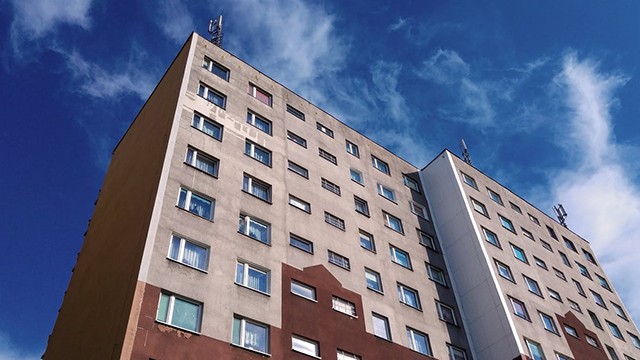Housing Affordability at Crisis Levels in Mississauga, Group Says
Published October 1, 2018 at 10:11 pm

While most people are aware that housing is expensive in Mississauga (and the GTA in general), one advocacy group says that housing costs have reached crisis levels in Mississauga.
In September, Peel ACORN (an independent national organization comprised of low and moderate income families) organized a rally to launch its Affordable Housing Petition Drive in Mississauga.
The event, which aimed to encourage municipal leaders and candidates to make affordable housing a priority ahead of the upcoming municipal election, took place at Celebration Square.
ACORN says it is a leading stakeholder on affordable housing in the province, having worked with the previous provincial government to ensure that its new inclusionary zoning legislation (legislation that mandates a portion of new housing stock be sold at prices deemed affordable) gave cities the tools to ensure developers maintain a certain amount of affordable units in new condo developments.
But while Mississauga has been independently active on the affordable housing file (meaning it’s not just waiting for the Region of Peel or the province to find a solution) with its Making Room for the Middle strategy, ACORN is asking the city to do more.
In fact, ACORN is calling for 25 per cent of all new housing developments be set aside for affordable housing.
It’s also asking the city to redefine its definition of low-income from $55,493 to $39,000 and moderate income from $99,000 to $66,000.
It also says all available city land should be used to build “deeply affordable” housing.
“With vacancy rates below 1 per cent, and 46 per cent of tenants in the city paying more that 30 per cent of their income on rent, the city of Mississauga is clearly facing a housing crisis,” says ACORN’s Virginia Vaithilingam.
“Councillors running to represent us at council must understand that affordable housing is the most pressing issue facing the city.”
As for Making Room for the Middle, the plan involves petitioning senior levels of government for taxation policies and credits that incent affordable housing.
It involves piloting tools such as pre-zoning and a Development Permit System to develop affordable housing in appropriate locations (close to transit systems, for example); encouraging the Region of Peel to develop an inclusionary zoning incentive program for private and nonprofit developers; encouraging the region to investigate the cost of deferring development charges on the portion of affordable units provided in newly constructed multiple dwellings and more.
The city has acknowledged that the lack of affordable housing is quickly becoming a crisis in a municipality that has become too costly for middle-class households.
Some of the Making Room for the Middle stategy’s findings are alarming, even though they’re not at all surprising.
Some key facts:
-
A home is considered affordable when its inhabitants spend 30 per cent or less of their earnings on housing costs
-
1 in 3 households are spending more than 30 per cent of their income on housing and research suggests this number will rise
-
Middle income households typically net between $50,000 and $100,000 a year
-
Middle income earners include nurses, teachers and social workers
-
People who want to purchase homes can typically afford to pay between $270,000 and $400,000, meaning their only options are condos and a limited selection of townhouses
-
Housing prices are adversely affected by supply and demand imbalances (there’s much more demand than there is supply, meaning that we’re living in a perpetual “seller’s market”)
-
The average rental unit costs $1,200 a month
-
Rental inventory is below 1 per cent
In 2017, the Toronto Real Estate Board (TREB) announced that detached houses in the 905 officially hit the $1 million. Now, they cost around $900,000, but it’s not uncommon for larger homes to sell for $1 million or more.
Even condos, the last bastion of affordable owned housing, are running purchasers a whopping $400,000 or more. The wild increases in house prices has, naturally, trickled down to the rental market. A quick look at MLS shows some one bedroom condos being rented out for as much as $1,500 a month.
ACORN, which typically advocates for lower-income earners, has also expressed concern about possible LRT-linked gentrification and the potential escalation in housing prices along the more working class Hurontario corridor.
Earlier this year, another ACORN-led rally was held so its members could demand Metrolinx (which is building the LRT), commit to building a community centre, green space, and job and childcare centres as part of any deal that Metrolinx signs with developers.
The upcoming municipal election will take place on Oct. 22.
insauga's Editorial Standards and Policies advertising





